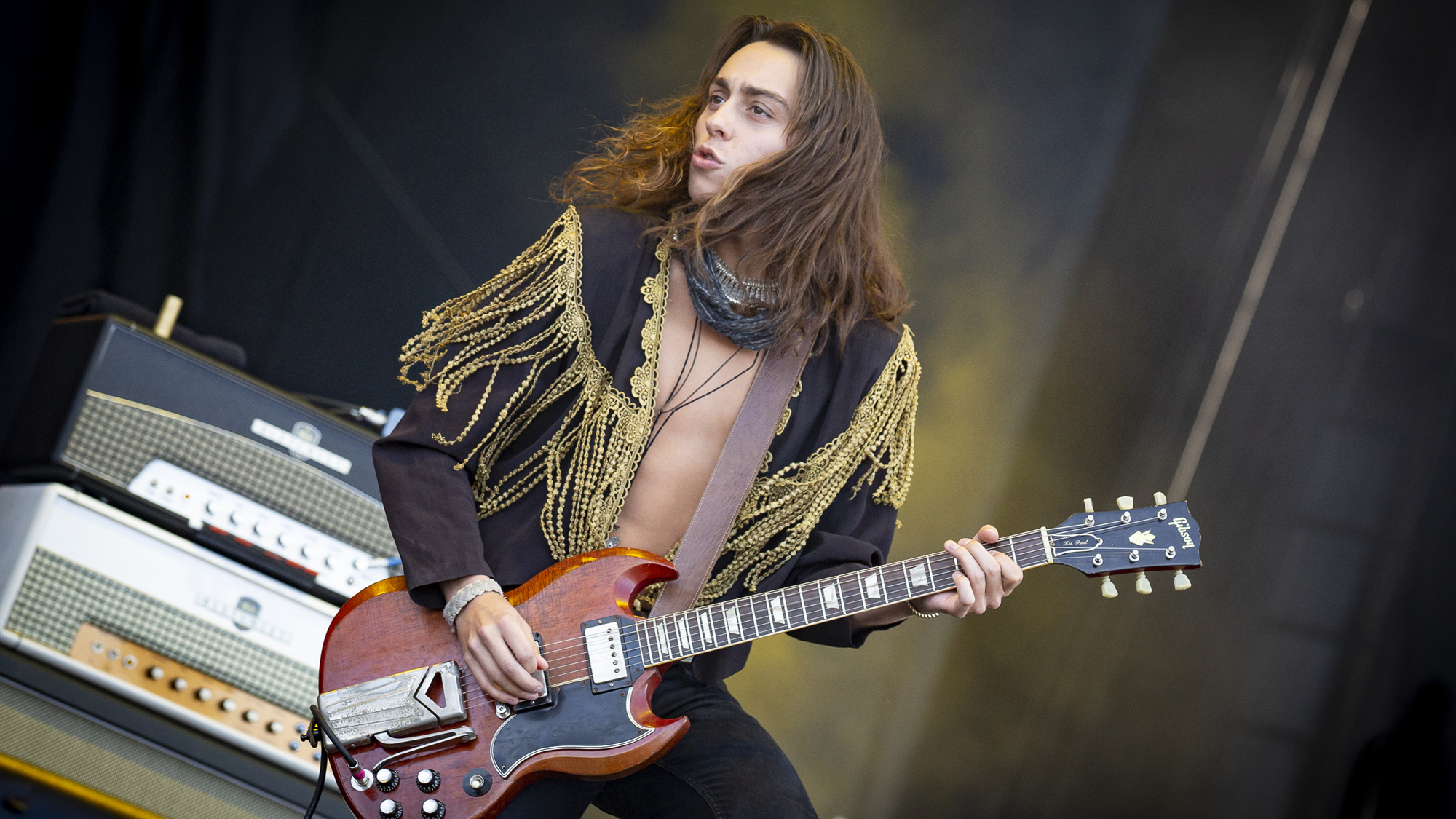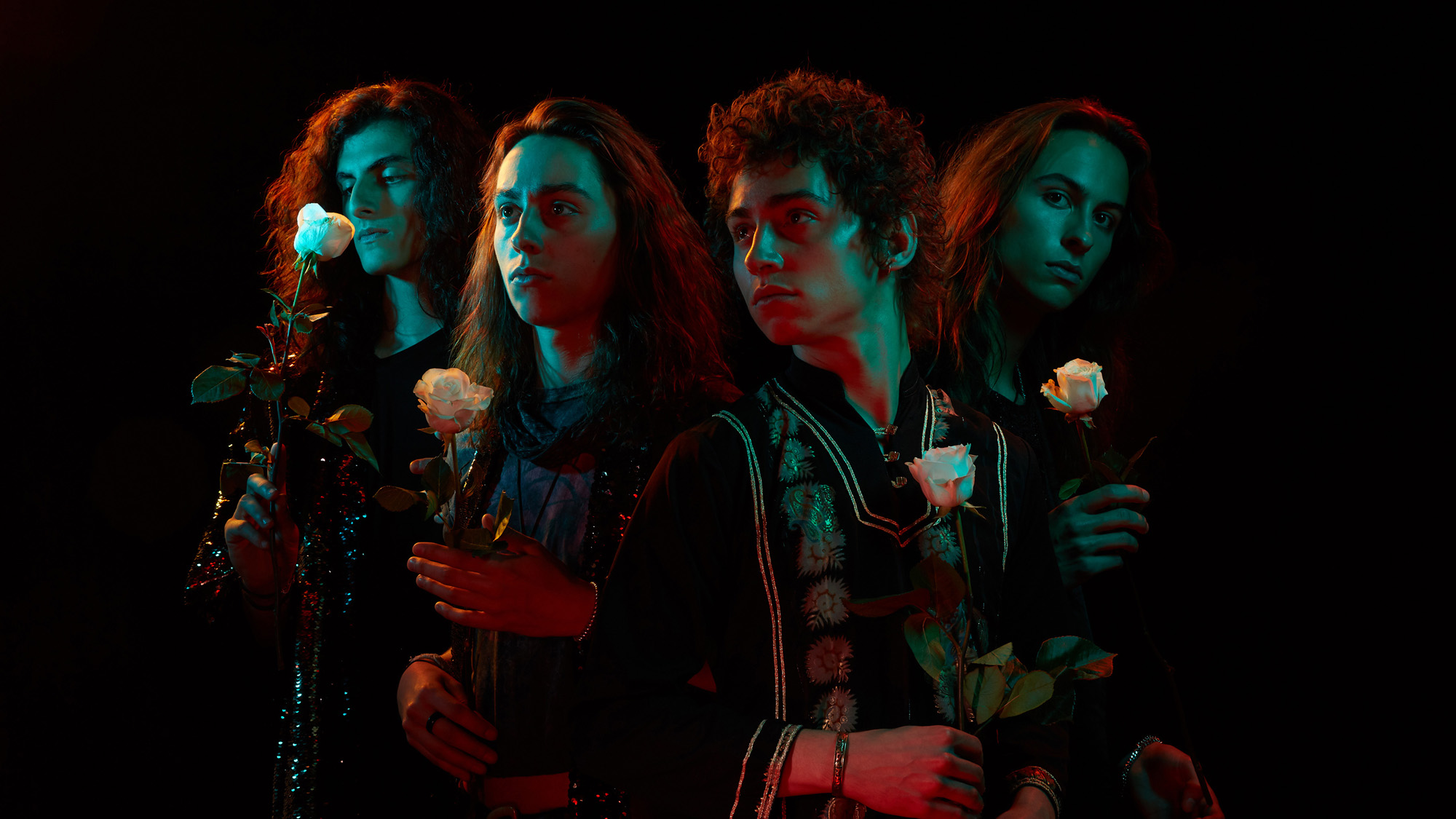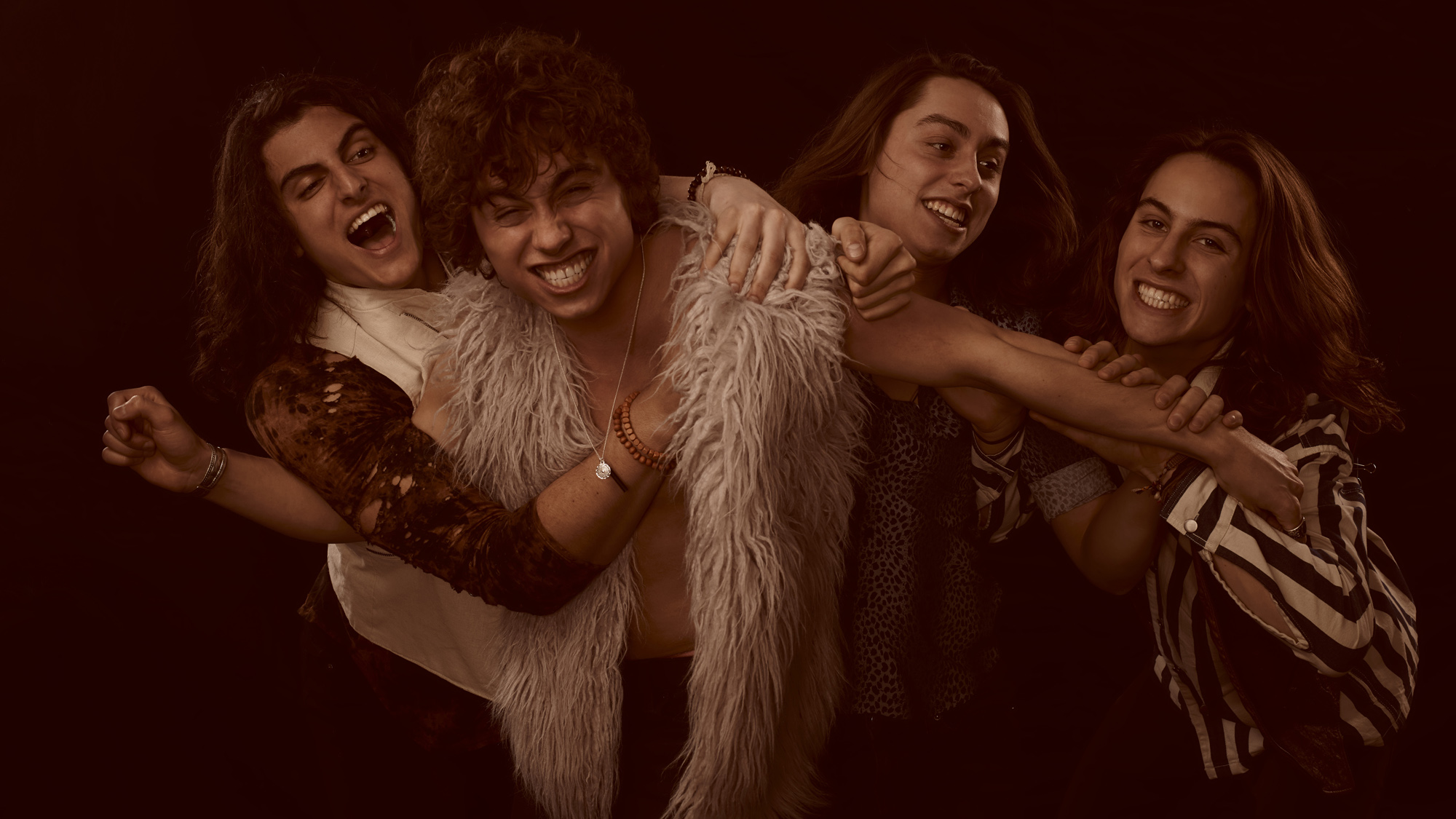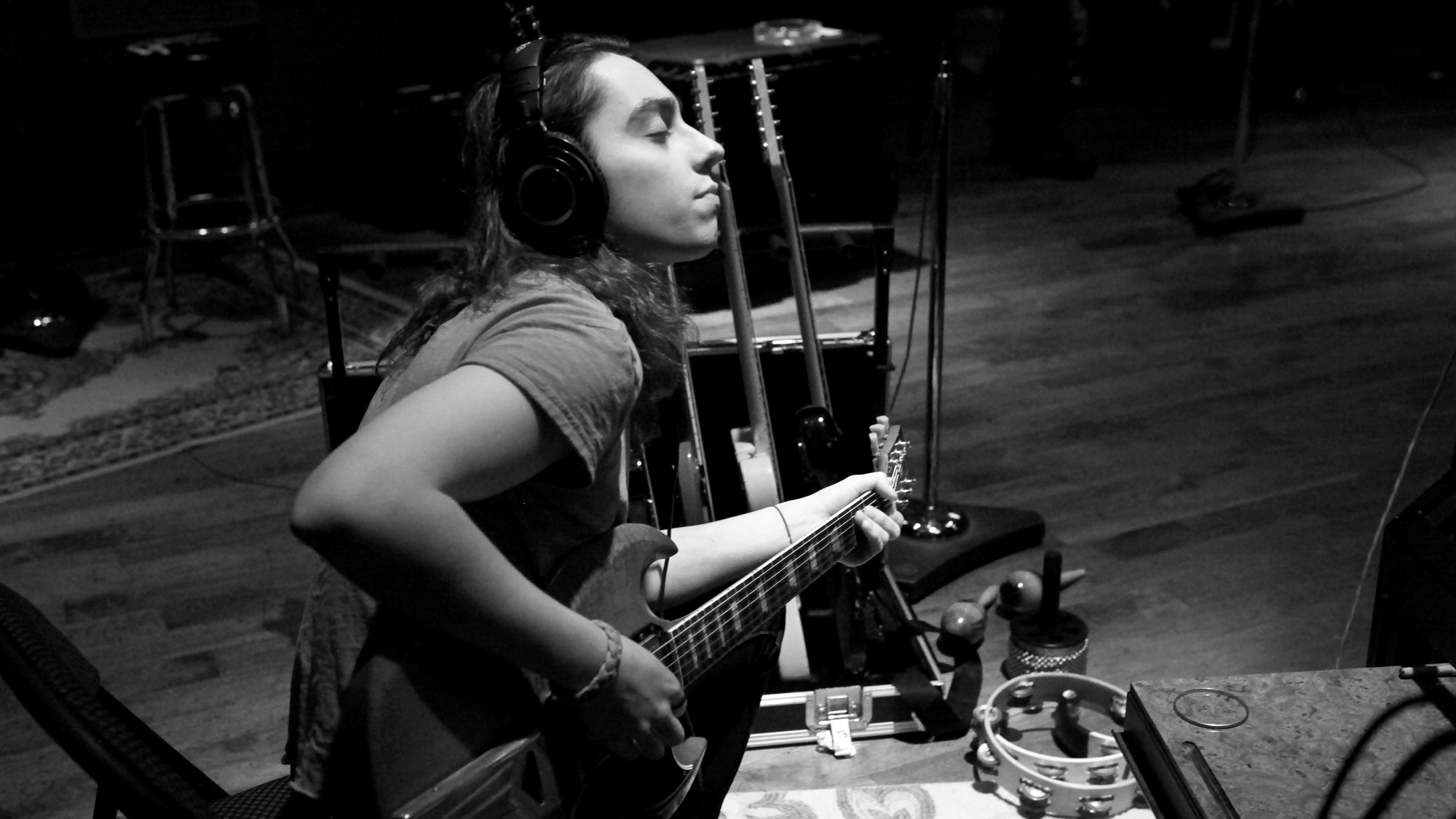Greta Van Fleet’s Jake Kiszka: "I think the guitar still has a lot of evolving to do"
If Greta Van Fleet are the new Led Zeppelin, that makes Jake Kiszka today’s answer to Jimmy Page. Here he explains how the guitar helped unleash the magic inside of him and keep demons at bay...

Want all the hottest music and gear news, reviews, deals, features and more, direct to your inbox? Sign up here.
You are now subscribed
Your newsletter sign-up was successful
WORLD GUITAR DAY 2018: Anyone with a vague interest in rock music and a working Internet connection will have seen some sort of footage of Greta Van Fleet over the last few years, a young Michigan quartet with a Led Zeppelin-rivalling knack for heavy riffs, seismic mid-tempo grooves and skyscraping vocals.
Despite being in their late teens/early 20s, the four members - comprised of the three Kiszka brothers and drummer Danny Wagner - possess a musical maturity that stretches far, far beyond their collective years. Those who feel rock is dead, or rapidly on its way to becoming obsolete, could learn a lot from the two EPs Greta Van Fleet have put out so far – and their debut album landing this October could very well have the final say on the matter.
For guitarist Jake Kiszka, the guitar is more than his instrument; it’s his way of life. As the 22 year-old prodigy explains, there’s a cathartic side to music that extends beyond the initial joy of creativity. It can bring a sense of purpose, communicate ideas that can’t be articulated by words and, ultimately, lift spirits in times of need...
It’s World Guitar Day! What do you immediately think of when you hear the word ‘guitar’?
I think the guitar still has a lot of evolving to do!
“Happy World Guitar Day! Looking at all the noises that have come out of this instrument over time, it’s pretty amazing. That’s what I think of – all the different ways it’s been utilised over the course of its evolution, pushing technical boundaries to create new sounds or new chord arrangements… it’s an incredibly exciting instrument that’s stood the test of time. And actually, I think the guitar still has a lot of evolving to do! There are a lot of great players out there, both young and old and any age in between, that have the ability to continue growing the instrument.”
Do you remember the moment you were first drawn to music?
“I started playing when I was very young, probably around the age of three. My father was a guitar player so I was hooked to it pretty quickly. There’s a story my dad told me about him putting a bunch of instruments on the floor, back when we were too young to even pick them up let alone try and play them, and he thought we’d all get bored eventually. But I never did... I just kept playing and playing, ha ha!”
Want all the hottest music and gear news, reviews, deals, features and more, direct to your inbox? Sign up here.
Was there one specific player that first inspired you on this journey?
“The first time I really identified with a guitar player and felt something deeply impactful was probably around seven or eight years old, sitting with dad in the living room watching a Cream documentary on VCR. I saw Eric Clapton and was blown away by his presence. I can still remember that feeling today – looking at him and feeling this sense of purpose. I said to my dad right there and then, ‘That’s who I want to be!’ I think that says a lot about how influential he has been – he can still have an effect on a player as young as me. His playing is that deep… it’s pretty wild.”

And after that?
“Then I went deeper into the early blues and British invasion bands. My parents had a pretty extensive vinyl collection: a mixture of soul, folk, RnB and everything else. I had an acoustic growing up, I didn’t get an electric until I was about 12, so I would strum along to old blues masters like Robert Johnson, Muddy Waters, Lightnin’ Hopkins, Albert King, B.B. King and John Lee Hooker. Just even with those guys, there was a pretty large body of work to explore. That’s how I evolved my own playing. It was all very truthful, and the same goes for the folk stuff – guys like Woody Guthrie and Bob Dylan were hugely transformative for me.”
How much did switching to electric guitar change your playing?
“Once I got my first electric, a Fender Squier, everything changed. I must have been in fourth grade and my teacher played us something from her generation, which was Jimi Hendrix’s Star Spangled Banner. That was another really critical moment where, despite never having heard it before, something really clicked, even though it seemed like most of the other kids didn’t really get it. But I felt I could understand it from all the traditional music I had heard growing up… I get goosebumps now just thinking about it.
“I remember tearing up because it was so emotional, so for the next three years I was obsessed with Hendrix – meticulously trying to figure out what he was doing. From there, I got into Santana and did the same with him, then Keith Richards and it was probably around my high school years where I started really understanding the British invasion players and became better at articulating my own version of it. Jeff Beck, Jimmy Page, Pete Townshend, all of those guys…”
Your band is quite unique in that three of you grew up together, both literally and musically. That must play a big part in being creative together...
“Absolutely. When you are raised in the same environment, you learn everything together. Two of our members I’ve known since birth! You not only go through the growth of your creative and artistic life, but you also share the same experiences outside of it too. When you’re writing and playing live, you can communicate purely through body language and mannerisms. I guess some of it conscious but a lot of it is subconscious… that’s part of what happens when we’re all together. We went from beginners to where we are at now – sharing that same understanding is a very special thing.”
As for the mental health side of playing guitar, have there ever been moments where the instrument has picked you up when feeling down?
“I was thinking about this just yesterday. I was watching an interview with Paul McCartney where he said the guitar, or any instrument, but especially the guitar is a tool of meditation. There’s a very transient quality when you are playing. So absolutely, there have been points in my life where I’ve felt depressed or confused or unhappy, and I’ve picked up the guitar to figure things out whenever I’ve felt like that.
“It’s changed as I’ve gotten older. When I was younger, the guitar was only a thing of joy – I would pick it up and feel excited. As you get older, life becomes a bit more complex and you experience these different emotions, so you start expressing all of that through the instrument. I put all of it into what I play and when I finish that song or whatever I feel 100 percent better and satisfied. That’s a large part of what the tool is capable of communication… it’s a medium for communication of all these emotions we can’t normally or necessarily express.”
Like many of the 60s/70s legends like The Rolling Stones, Led Zeppelin or Free, your music weaves through both major and minor tonalities. Is that a conscious thing?
It’s a medium for communication of all these emotions we can’t normally or necessarily express
“I was told it was fairly uncommon to go from minor to major. But it became this subconscious thing for me, because I’d write things like Edge Of Darkness which has verses that are in minor but when it hits the chorus it all goes into major, and same goes for the solo. It’s all about dichotomy of the two.
“Minor scales have this dark ambience to them so it’s cool to use that for dynamics within whatever story you are trying to tell. I tend to listen to the lyrics that Josh sings and try to create from that. On something like Watching Over or Edge Of Darkness, I’m trying to stay true to that. There are elements that Jimmy Page described as light and shade… moods can swing from dark or bluesy and then transition into something more uplifting.”

As for equipment, you tend to stick with the very classic set-up of a Gibson going through a Marshall...
“It’s almost like you learn more about yourself through the guitar you are playing. It’s not like you go out to find the guitar, it’s more like it finds you in one way or another – and that’s kinda what happened with me and that classic pair of brands. My dad would take me to the music shop and would tell me not to worry about what amp was what, he told me just to pay more attention to the quality of the tone and what I was hoping to hear. We spent a year or so trying to find my first amp and it ended up being a Marshall. After my first guitar, I ended up with an SG Standard with P90 pickups… I guess I was just drawn to the tonal qualities.
“Hendrix, Clapton, all those guys played through Marshalls. Cream was the combination of an SG and a Marshall, so naturally I was going to head that way. Page, Beck, Townshend, there are so many great players that trusted in that pair.”
What’s the story behind the ‘61 Les Paul you’ve used extensively on stage?
“I was gifted that 61 Les Paul by the CEO of a music store called the Chicago Music Exchange. He invited me over when we were in Chicago and took me up into this room called The Vault, pulling out all these half million dollar guitars.
“There was this 1961 Les Paul, which has the same body shape as the SG, that had PAF pickups… in an instant, the moment that guitar was in my hands, there was this transcending moment. I could play things I didn’t know I could actually do and it elevated my abilities. He left me in the room, plugged into a Marshall turned up all the way, and an hour later he came back and just said, ‘That’s yours man, pack it up!’ I’ve been using it ever since, mainly through a Marshall Astoria.”
Is there much in between your guitar and amp?
I was gifted that 61 Les Paul by the CEO of a music store called the Chicago Music Exchange
“While we were making the album, there were quite a few pedals I used to diversify my sound. I have two Holy Grail reverbs – one to create the general reverb and another that sounds more like a spring being dropped, which is fun to toy around with. There’s a song we have called Brave New World that has this fuzzy, crackly tone that really overdrives the pre-amp where I used a Jext Telez Face.
“It’s this big, long rectangular pedal that is super obnoxious and sounds brilliant, I’ll probably be adding it to my board so I can recreate that solo tone. Another new thing I’ve been honing in on is my wah-wah pedals. Over the last few months, I’ve been incorporating a Dunlop wah to add more dimension to my playing during the shows.”

You’re just about to release your long-awaited debut album. What was the writing/recording process like and what can we expect from it?
“There were quite a few objectives in making this album. For the most part, we wanted to try and build on what we’d previously released… I think we achieved that. From touring consistently and playing every night, there’s been this evolution of skill level that we might not have been conscious of. It’s hard to identify with, but people that caught us at one show and then four months later have told us they’ve seen a lot of growth – which adds this whole existential perspective on this album. We’ve become better musicians and more studio-savvy, as well as better songwriters. We’ve added to the diversity of our sound as we’ve grown – which was one of the objectives.
“The album has a lot of personality and range that we didn’t foresee, things that just happened during the recording process that we didn’t realise until we sat down and listened back. So much came out of the three weeks we were recording. There are more stripped-down acoustic songs that feel personal to more electric guitar-driven, heavier ideas with intensity. It feels more like a journey than anything we’ve put out before. We want to take people all the way from the top to the bottom and back.”
Join us in celebrating World Guitar Day 2018! Get playing, and share your best guitar videos, pictures, tips and stories with hashtags #WGD18 #worldguitarday
Amit has been writing for titles like Total Guitar, MusicRadar and Guitar World for over a decade and counts Richie Kotzen, Guthrie Govan and Jeff Beck among his primary influences. He's interviewed everyone from Ozzy Osbourne and Lemmy to Slash and Jimmy Page, and once even traded solos with a member of Slayer on a track released internationally. As a session guitarist, he's played alongside members of Judas Priest and Uriah Heep in London ensemble Metalworks, as well as handling lead guitars for legends like Glen Matlock (Sex Pistols, The Faces) and Stu Hamm (Steve Vai, Joe Satriani, G3).
